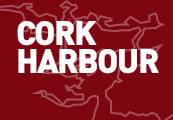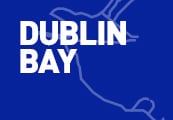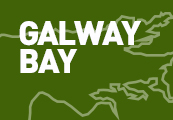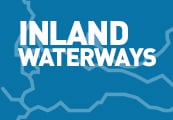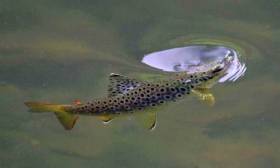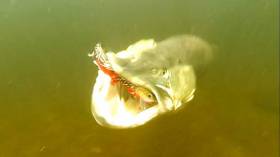Displaying items by tag: Byelaws
Five New Inland Fisheries Regulations Signed by Minister Ryan
Minister for Environment, Climate and Communications, Eamon Ryan has made the following order and bye-laws as of Thursday 11 April:
1. Control of Fishing for Salmon (Amendment) Order S.I. No. 81 of 2024
This order authorises the issue of commercial fishing licences by Inland Fisheries Ireland and sets out the criteria under which those licences may be issued and prescribes the maximum number of commercial licences which may be issued.
2. Galway District Conservation of Trout in the Rivers Clare, Abbert, Dalgan, Grange, and Sinking Bye-Law No. 1008, 2024
This bye-law provides for the following trout conservation measures in the rivers specified in the bye-law:
- Provides for a daily bag limit of 2 trout in the specified rivers of which not more than 1 trout is greater than 10 lbs (4.54 kgs)
- Prohibits the taking or having in possession of trout less than 13 inches (33 cm)
- Prohibits the use of more than 1 rod or 4 artificial flies when fly fishing
- Prohibits the use of more than 1 rod when dapping
- Prohibits the use of more than 2 rods or 4 artificial flies per rod when trolling
- Prohibits the use of more than 2 rods when bait fishing or spinning
- Prohibits the having on board a boat more than 3 rods when more than 1 person
- is bait fishing, spinning or trolling
3. No. 5 or Cork Fisheries District, Lower River Lee, (Sea Trout and Brown Trout) Angling Bye-Law No. 1009, 2024
This bye-law extends the annual close season for angling for sea trout and for brown trout from 14 October to 1 October each year in the waters of the river Lee and its tributaries downstream of the hydro-electric dam at Inniscarra.
The close season for angling for sea trout in said waters will commence on 1 October each year and end on 31 January in the following year, both dates inclusive and the close season for angling for brown trout in said waters will commence on 1 October each year and end on 14 February in the following year, both dates inclusive.
4. Conservation of Salmon and Sea Trout (Draft Nets and Snap Nets) Bye-law No. 1010, 2024
This bye-law sets out the opening and closing dates (and hours) for the draft net and snap net salmon and sea trout commercial fishing season in 2024 and prohibits draft net and snap net fishing for salmon and sea trout in all fishery districts except those mentioned in the schedule to the bye-law.
5. Conservation of Eel Fishing Bye-Law No. C.S. 335, 2024
This bye-law prohibits the taking, or attempting to take, fishing for or attempting to fish for, aiding or assisting the taking of or fishing for eel in any fishery district in the State. It also prohibits being in possession of, selling or offering for sale or reward, or purchasing eel caught or taken by any means in any fishery district in the State.
Waterways Ireland Opens Second Phase of Public Consultation on Revised Canals Bye-Laws
Waterways Ireland is inviting members of the public and interested parties to have their say on proposed revisions to the Shannon Navigation and canals bye-laws in a second phase of consultation.
The consultation covers the Shannon Navigation (including the Shannon-Erne Waterway), Royal Canal, Grand Canal, Barrow Line and Barrow Navigation, and submissions in Phase 2 are open until Monday 26 February.
Following the initial consultation period, which concluded in late October 2023, Waterways Ireland says it reviewed all the submissions and has published a Phase 1 consultation report.
Based upon the feedback received in the first phase, a set of amended draft bye-laws has been issued and can be found on waterwaysireland.org as well as in local libraries along the waterways corridors.
Members of the public can also attend any of two information evenings, taking place on Tuesday 6 February at the Hodson Bay Hotel in Athlone (6pm-9pm) and Wednesday 7 February at Mullingar Park Hotel (6pm-9pm).
Submissions to the public consultation can be made through the online survey on the website, by email to [email protected] and by post to Waterways Ireland Inspectorate, Dock Rd, Athlone, Co Westmeath, N37 RW26.
Following this consultation, the cross-border body for Ireland’s inland waterways says it make any necessary changes to the bye-laws following a review of submissions, with the next stage being ministerial approval.
Concerns Over Proposed Changes to Inland Waterways Bye-Laws
Boat owners and watersport enthusiasts have expressed concern over proposed new bye-laws for Ireland’s inland waterways, according to RTÉ News.
Afloat.ie previously reported on the public consultation over the proposed bye-law changes for the canals and Shannon Navigation, which closes today (Friday 27 October).
Waterways Ireland says over 600 submissions have been received in this first phase of consultation.
“We’ve had very good feedback from the public and from stakeholders,” said Paddy Harkin, inspector of navigation at Waterways Ireland. "We want to have bye-laws that will be fit for purpose for the next 20 to 30 years.”
But there are fears in some corners over such proposals as changes to mooring times and rules, as well as a €200 registration fee for businesses operating on the Shannon.
RTÉ News has more on the story HERE.
Waterways Ireland Extends Public Consultation on Revised Canals and Shannon Navigation Bye-Laws
Waterways Ireland has extended the public consultation on proposed bye-law changes for the canals and Shannon Navigation, with a second phase of public consultation also added to facilitate further engagement with the public and stakeholders.
The initial consultation period (phase 1) has been extended to Friday 27 October, having originally been due to close this past Monday 2 October.
Following the initial consultation period, Waterways Ireland will review all submissions during November and December 2023. It says it will then “endeavour to proactively and equitably deal with legitimate matters of concern raised during the initial public consultation process, publish its consultation document and re-issue amended draft bye-laws”.
Phase 2 of the public consultation will then run from 15 January to 26 February next year. This phase of the process will offer all stakeholders an opportunity to consider the modifications to the proposed revised bye0laws.
Thereafter, Waterways Ireland says it will consider all new feedback received “to best address the views of all stakeholders and ultimately, update bye-laws which are undisputedly out of date and unfit for purpose”.
It adds that there will be no changes to the existing bye-laws, permits or charges/fees until revised bye-laws are approved.
Waterways Ireland encourages everyone to read the draft bye-laws and to participate in the public consultation, and is keen to hear from anglers, boaters, cyclists, paddle-sport enthusiasts, runners, walkers, members of communities along the inland waterways and the public at large.
The draft bye-laws can be found on waterwaysireland.org and in local libraries along the waterways corridors.
Submissions to the public consultation can be made through the online survey on the website, by email to [email protected] and by post to Waterways Ireland Inspectorate, Dock Rd, Athlone, Co Westmeath, N37 RW26.
The proposed changes relate to the Shannon Navigation Bye-Laws (including the River Shannon, Shannon-Erne Waterway, River Finn and Ulster Canal) and Canal Bye-Laws (including the Grand Canal, Royal Canal and Barrow Navigation).
Additional Public Meeting in Mullingar for Consultation on Revised Canals and Shannon Navigation Bye-Laws
Waterways Ireland has scheduled an additional public meeting on proposed revisions to the Shannon Navigation and Canals Bye-Laws for Thursday 21 September in Mullingar.
As previously reported on Afloat.ie, members of the public and interested parties are invited to have their say on the proposed changes by making a submission to the public consultation which opened on Monday 19 June.
The consultation covers the Shannon Navigation (including the Shannon-Erne Waterway), the Royal Canal, Grand Canal, Barrow Line and Barrow Navigation. The consultation runs until Monday 2 October 2023.
Following the series of public meetings in June and July, one more will be held at the Mullingar Park Hotel on Dublin Road, Mullingar, Co Westmeath on Thursday 21 September from 6pm to 9pm, where Waterways Ireland staff will provide information on the revisions and feedback can be given.
The draft bye-laws and explanatory notes are available to download from the Waterways Ireland website, which also has a list of public libraries were members of the public can review the documents in person.
Feedback is welcome using the link on the website. Alternatively you can email your submission to [email protected] or send by post to Waterways Ireland Inspectorate, Dock Rd, Athlone, Co Westmeath, N37 RW26.
Following the public consultation, the cross-border body for Ireland’s inland waterways will review the submissions, make any necessary changes to the bye-laws and submit them to the minister for approval to proceed.
Waterways Ireland is inviting members of the public and interested parties to have their say on proposed revisions to the Shannon Navigation and Canals Bye-Laws by making a submission to a public consultation, which opened on Monday (19 June).
The consultation covers the Shannon Navigation (including the Shannon-Erne Waterway), the Royal Canal, Grand Canal, Barrow Line and Barrow Navigation. The consultation runs until Monday 2 October 2023.
Public meetings are planned where Waterways Ireland staff will provide information on the revisions and feedback can be given:
- North Shannon: The Bush Hotel, Main Street, Carrick on Shannon, Co Leitrim, Monday 26 June 6-9pm
- South Shannon: Killaloe Spa Hotel, Kincora Harbour, Killaloe, Co Clare, Tuesday 27 June 6-9pm
- Dublin: Maldron Hotel, 98-107 Pearse Street, Grand Canal Dock, Dublin 2, Wednesday 28 June 6-9pm
- Barrow: Seven Oaks Hotel, Athy Road, Carlow, Co Carlow, Monday 3 July 6-9pm
- Royal Canal: Mullingar Park Hotel, Dublin Road, Mullingar, Co Westmeath, Tuesday 4 July 6-9pm
- Grand Canal: Tullamore Court Hotel, O’Moore Street, Tullamore, Co Offaly, Wednesday 5 July 6-9pm
- Mid Shannon: IWAI HQ, Dunrovin, Coosan, Athlone, Co Westmeath, Monday 10 July 6-9pm
The draft bye-laws and explanatory notes are available to download from the Waterways Ireland website, which also has a list of public libraries were members of the public can review the documents in person.
Feedback is welcome using the link on the website. Alternatively you can email your submission to [email protected] or send by post to Waterways Ireland Inspectorate, Dock Rd, Athlone, Co Westmeath, N37 RW26.
Following the public consultation, the cross-border body for Ireland’s inland waterways will review the submissions, make any necessary changes to the bye-laws and submit them to the minister for approval to proceed.
Galway County Council Agree to Consultation on Proposed Beach Bye-Laws
Galway County Council has agreed to consult with watersport bodies on proposed beach bye-laws which would have banned all activities apart from swimming on 24 beaches.
Officials and councillors agreed that watersport representative bodies would meet the county council’s Strategic Policy Committee Meeting early next year.
The meeting will discuss zoning, maps and “any other issues with a view to amending or otherwise the proposed bye-laws”.
Opponents of the bye-laws welcomed the development, stating that “with this broad agreement in place and no opposition, Galway County Council are showing very positive signs and ‘goodwill’”.
“We all look forward to engaging with them positively next year,” it said.
Under the draft legislation, sailing, kayaking, windsurfing, stand-up paddling and horse-riding would be banned at 24 beaches extending from the Aran islands to Connemara to Portumna with a risk of fines of up to €1900.
The by-laws propose that “no person shall windsurf on sailboards or kite-surf on kiteboards or surf on a surfboard or use a canoe, kayak, dinghy, stand-up paddle board or water bike in close proximity to bathers”.
The draft bye-laws also propose banning dog walking between 11 am and 7 pm and ensuring dogs are on a leash outside these hours during summer months.
Bans on the use of inflatable water devices on open water, and personal watercraft, power craft and fast power craft within 300m of the low water mark at the time of use, “except for the purpose of rescue”, are also proposed.
A Galway Paramedic on His Petition Opposing Controversial Beach Bye-Laws
Paramedic Patrick Dunne is a keen kitesurfer, windsurfer, sailor, swimmer and general watersports enthusiast who has volunteered with the RNLI.
He has initiated a petition opposing Galway County Council’s new draft bye-laws which propose to ban watersports apart from swimming off 24 beaches in the county.
As initially reported by Afloat, the draft bye-laws state that “no person shall windsurf on sailboards or kite-surf on kiteboards or surf on a surfboard or use a canoe, kayak, dinghy, stand-up paddle board or water bike in close proximity to bathers” off any of the 24 named beaches.
The draft bye-laws also state that the council “ may at its discretion designate areas of any beach in and at which the use of surfboards and/or kiteboards and/or sailboards and/or canoes and kayaks and/or dinghies and/or stand-up paddle boards and/or water bikes is restricted or prohibited”.
However, watersports enthusiasts point out that consultation on zoning should have taken place before any draft legislation was published.
Blue Flag criteria also stipulate that beaches must be accessible to all and that there must be management and zoning for different users to prevent conflicts and accidents.
If Galway County Council’s bye-laws are passed without amendment, the council may be empowered to issue on-the-spot fines of €75 euro to anyone in breach of conditions and, if found guilty in court, a fine of up to €1,904.60.
The deadline for submissions on the proposals has been extended to 4 pm on November 25th.
 Paramedic Patrick Dunne (right) is a keen kitesurfer, windsurfer, sailor, swimmer and general watersports enthusiast
Paramedic Patrick Dunne (right) is a keen kitesurfer, windsurfer, sailor, swimmer and general watersports enthusiast
Patrick Dunne spoke to Wavelengths about the petition he has initiated and why his own personal experience leads him to believe this type of legislation will create an unnecessary conflict between swimmers and all other watersports users.
Listen to Wavelengths below
Public Consultation On New Bye-Law For River Bandon Trout
#Angling - Submissions are now open in a public consultation hosted by Inland Fisheries Ireland (IFI) around a proposed angling bye-law which focuses on the conservation of sea trout and brown trout on the River Bandon.
The new bye-law aims to help conserve the numbers of brown trout of all sizes taken from upstream areas of the river and its tributaries, as well as the numbers of young sea trout taken in the lower river and upper estuary.
There is currently no minimum length size specified when catching and retaining a sea trout or brown trout on the river. In addition, there is no ‘bag limit’ on the number of brown trout an angler can retain.
The new bye-law would set a minimum length of 25 centimetres for any sea trout or any brown trout caught and retained on the waters of the River Bandon and its tributaries, and a bag limit of not more than three brown trout per day on the waters of the River Bandon and its tributaries.
The bye-law would also require anglers to fish by catch-and-release methods, ban the use of worms, and allow only single barbless hooks in angling for brown trout once the three per-day bag limit had been reached.
Interested parties should make a submission to the consultation in writing. Submissions should be marked ‘Public consultation – River Bandon (Conservation of Trout)’ and be submitted by post to Inland Fisheries Ireland, Sunnyside House, Macroom, Co Cork, P12 X602 or by email to [email protected].
The deadline for receipt of submissions is 5pm on Monday 31 December. All submissions received by IFI will be published on its website at www.fisheriesireland.ie.
Trout Anglers Welcome New Bye-Law For Western Lakes - But Pike Angling Group Takes Aim At Minister
#Angling - The Connacht Angling Council has welcomed the new bye-law providing special protection for wild brown trout in the great western lakes.
As previously reported on Afloat.ie, the Designated Salmonid Waters Bye-law was signed last Thursday 25 October by the new Minister for Communications, Climate Action and Environment, Richard Bruton.
It means that Loughs Carra, Conn, Cullin and Mask in Mayo, Lough Corrib in Co Galway, Lough Arrow in Cos Sligo and Roscommon, and Lough Sheelin in Westmeath, Meath, Cavan and Longford will now be managed exclusively for the benefit of wild brown trout.
“We are delighted [former Environment] Minister Kyne took on board our grave concerns regarding the future of wild brown trout stocks in western lakes,” said Martin Kinneavy, chair of the Connacht Angling Council.
"There is now a sincere and genuine commitment to develop wild brown trout stocks in western lakes and a copper-fastened strategy to deal with the threat of predator pike.
“Our world famous Irish wild brown trout fisheries are now protected by law from pike and can reach their full trout angling potential.”
A previous bye-law in relation to the protection of pike in these waters will now no longer apply – which has raised the ire of pike anglers in the affected region.
Members of the Irish Pike Society are preparing a mass protest for the constituency offices of Minister Bruton and Taoiseach Leo Varadkar as well as Leinster House.
They argue that the bye-law changes “will decimate a section of the Irish angling industry which supports over 11,000 jobs and contributes almost €1bn to the Irish economy,” according to the society’s secretary Paul Byrne.
“The Irish Pike Society have over the past months engaged legal counsel and are fully prepared to challenge Minister Bruton in the High Court,” he added.


